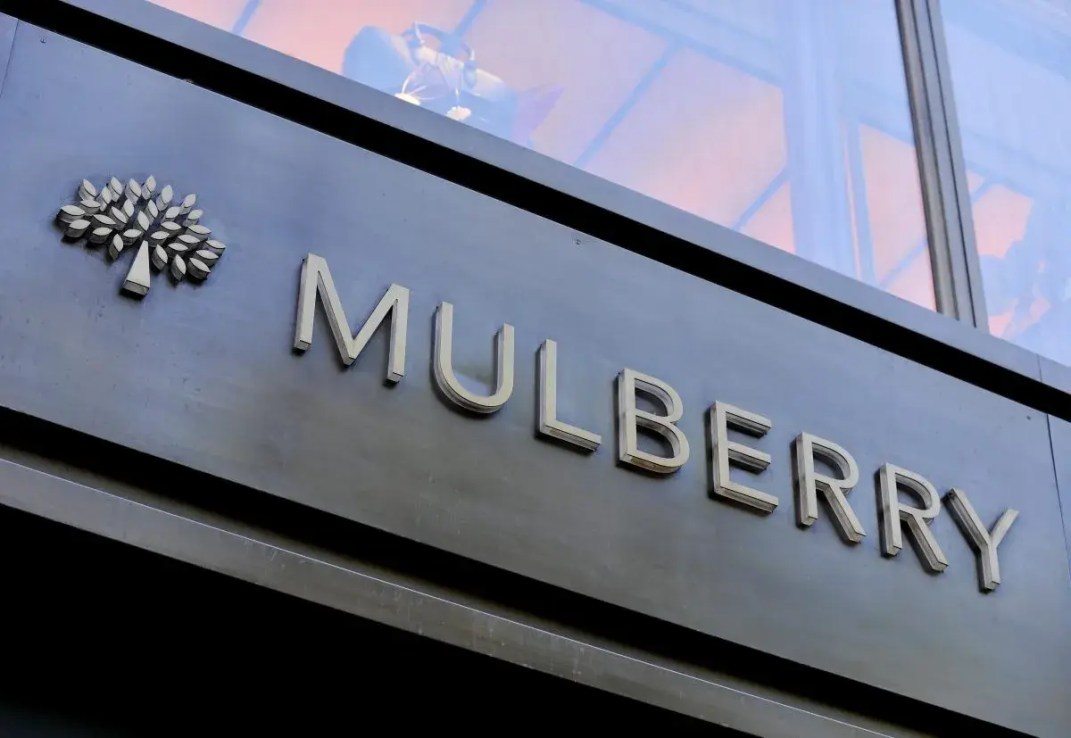Analysts say Frasers ‘was right’ about Mulberry as it faces long road to recovery
Analysts have painted a grim picture for the future of British luxury fashion brand Mulberry, which announced its half-year results this morning. It implied job cuts with talk of “streamlining” the business, and told markets that retail sales and revenue dropped 17 per cent and 19 per cent, respectively. Its share price fell 10 per [...]


Analysts have painted a grim picture for the future of British luxury fashion brand Mulberry, which announced its half-year results this morning.
Its share price fell 10 per cent during the day, taking its year-to-date drop to more than 36 per cent.
Mike Ashley’s “Frasers was right when it implied that Mulberry was in a mess.”
The luxury goods company’s half-year results show losses getting bigger, margins falling, sales down in all regions and an outlook statement soured by the words ‘uncertainty’ and ‘challenges’,” AJ Bell investment director Russ Mould said.
“The new boss Andrea Baldo isn’t blind to the problems. His response is to cut costs, make the company more efficient, improve margins and rebuild the company’s financial strength.”
Those things won’t happen overnight. It’s now a waiting game to see if new life can be breathed into the business,” Mould added.
Frasers made two bids for Mulberry with the argument that the struggling retailer was going the same way as Debenhams, which collapsed into administration in 2021. Frasers lost £150m.
But Mulberry rejected the second, higher bid as “untenable” and defended its turnaround strategy, which included Baldo at the helm.
However, Begbies Traynor partner Julia Palmer said Mulberry’s results “do not yet show any signs of a recovery”.
“The competitive market has not been kind to Mulberry, which has struggled to carve out a significant niche for itself in recent years… Mulberry now needs to prove that it can pull off its plans to reshape the business and return to growth,” Palmer added.
Reduced operating costs ‘encouraging’
Mulberry cut operating expenses by 16 per cent – or £10m – in the half-year, which Palmer described as “encouraging”.
She also welcomed Baldo, and said investors should be “quietly optimistic” about his track record and plan to bring the company ‘back to basics’.
Baldo’s plan follows in the track of similarly embattled luxury firm Burberry, whose investors have been buoyed by evidence of its turnaround.
“Sadly for Mulberry, it is embarking on its long road to financial recovery against a troublesome backdrop in the UK that is characterised by volatile confidence and higher costs so that will not make life any easier,” Palmer said.
Confidence in the UK had been rallying this year after interest rate started to fall post-election, but took a hit in November after a hard-to-swallow budget caused many businesses to publicly warn on inflation and reduced investment.
Research director at XTB Kathleen Brooks agreed that challenging conditions in the UK spelled trouble for Mulberry. However, Brooks added that the firm hasn’t helped itself by occupying a particularly squeezed section of the market.
“While trading conditions have been tough for luxury and in the UK, part of Mulberry’s problem is its product offering, which has not kept pace with its rivals. It also sits in an awkward space between high end and mid-range luxury,” Brooks said.
“Thus, its sales slump also tells you a story about changing consumer desires when it comes to leather goods.”

